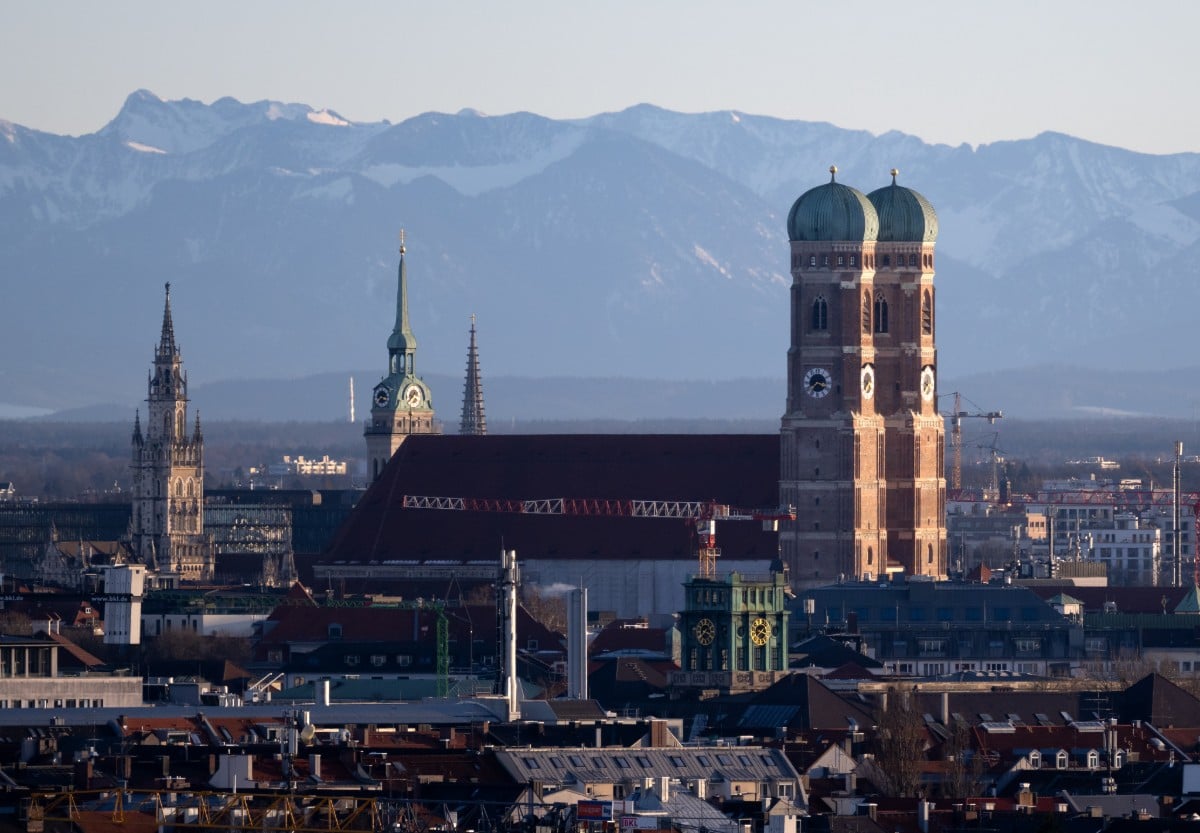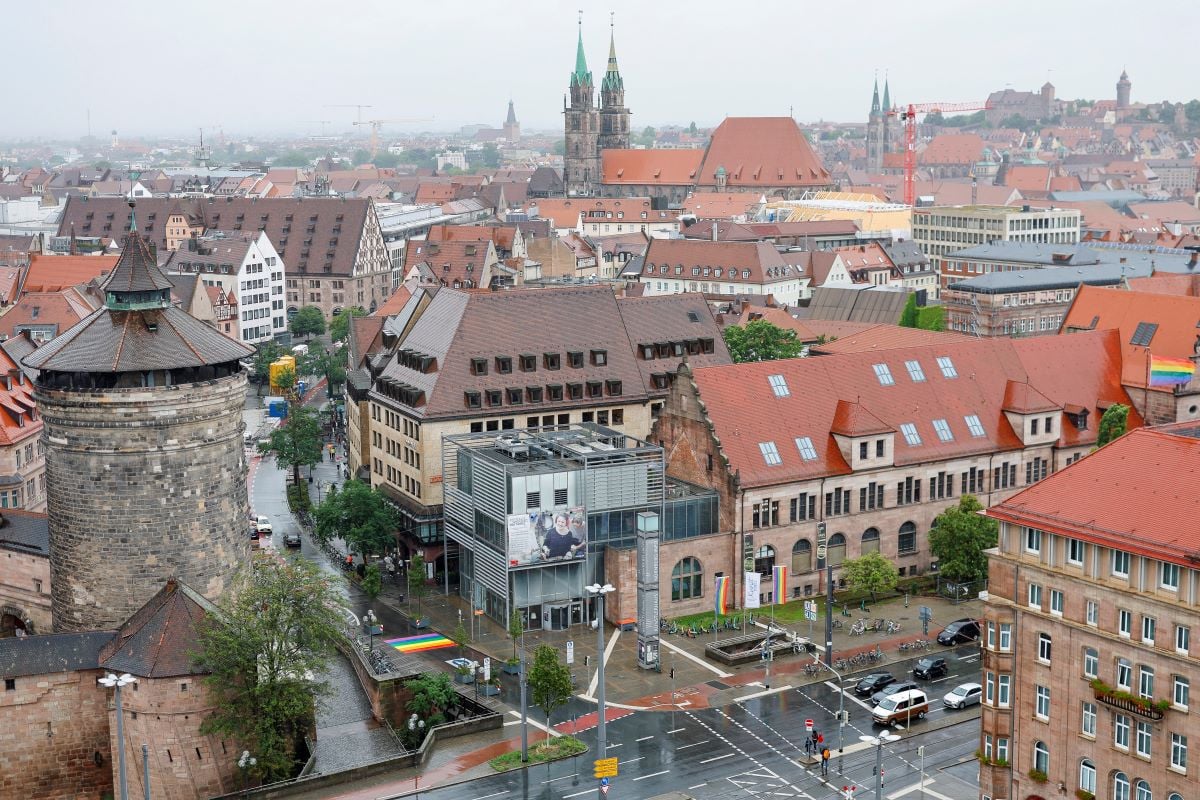Rents have been accelerating upward in German cities in recent years.
For those lucky enough to have an older rental contract, the situation is better - although many of these tenants are still seeing rent hikes.
But for new arrivals on the German rental market, or those looking to move to a new home, the rent increases are dizzying.
In fact research carried out last year by real estate platform ImmoScout, found that rents have shot up by as much as 30 percent in the past two years in major German cities.
READ ALSO: 'A new peak' - How high have rents risen in Germany's big cities?
ImmoScout24's 'Residential Barometer', which analysed the last few months of 2024, discovered higher prices for new lettings across Germany compared to the previous quarter - except in Berlin.
Overall, in the fourth quarter of last year, the average asking rent for new lettings of an existing flat (not a newbuild) across Germany was €8.57 per square metre. Asking rents rose by 0.3 percent compared to the previous quarter, and by 1.8 percent year-on-year.
Where in Germany are rents rising?
The major cities in the Rhineland stand out. In Düsseldorf, the average rent for new lets rose by 2.2 percent compared to the previous quarter, bringing the average cost of a square metre to €13.39. In Cologne, there was an increase of 2 percent, putting average rents up to €13.56 per square metre.
READ ALSO: Why tenants in Germany could see steep rent hikes in 2025
Major cities in the south of Germany also recorded an increase in rent prices - albeit more moderate than in the Rhineland.
In Stuttgart, the average asking rent rose by 1.5 percent compared to the previous quarter. With a cost of €14.28 per square metre for new rentals, the capital of Baden-Württemberg is the third most expensive major city after Munich and Frankfurt.
In Munich the average asking rent rose by 1.2 percent to €21.22 per square metre, while in Frankfurt am Main, there was no recorded price hike in the last quarter but the average price per square metre for a flat was €14.97.

In Berlin, asking rents for new lettings moved downwards slightly in the fourth quarter of 2024, falling by 0.6 percent to €14.11 per square metre. It comes after a period of accelerated growth on the Berlin rental market.
READ ALSO: Is there any hope for Berlin's strained rental market?
In a year-on-year comparison, prices for new lettings of existing flats in Berlin rose by 6.4 percent, a hike that was only exceeded in Frankfurt (+6.8 percent) and Düsseldorf (+8.4 percent).
In Leipzig, asking rents for new lettings of existing flats have risen by 6.1 percent within a year, and now stand at an average of €8.49 per square metre. In Hamburg, the year-on-year price hike of 3.7 percent to €13.80 per square metre is the lowest yearly increase of the larger cities.
For new-build apartments, the situation is more severe as there are fewer rent controls. Average prices for new rentals in this sector have risen across Germany and now stand at an average of €12.63 per square metre.
The highest asking rents for new-build flats are in Munich, at €25.68 per square metre, Berlin (€20.11) and Frankfurt (€18.35).
READ ALSO: What changes for renters and homeowners in Germany in 2025

What's happening in mid-size cities?
ImmoScout reported that demand and rents in mid-size cities are at a lower level overall, but the development is dynamic. In the eight 'second-tier' cities, demand has risen by 18 percent year-on-year, compared to 14 percent in the major cities.
In the Saxon state capital of Dresden, for instance, demand for rental properties went up by 34 percent, while in Bochum demand rose by 21 percent.
Aside from demand, rents are also rising significantly in the these cities - albeit from a lower level than in the metropolises. While prices for new rentals in the major cities rose by 6.1 percent on average year-on-year, the following eight cities recorded price growth of 6.6 percent.
With an increase of 11.5 percent, asking rents in the Bavarian city of Nuremberg have developed particularly strongly. The average rent price there is €11.30 per square metre currently.
In North Rhine-Westphalia's Essen, asking rents have risen by 8.7 percent within a year to €8.62 per square metre.
With an election coming up, rent controls and the lack of housing space in tight markets have been on the minds of German voters and politicians.
ImmoScout called on politicians to deal with the problems.
"The federal election campaign is intensifying discussions about stricter rent regulations," said Gesa Crockford, managing director of ImmoScout24. "But instead of tackling the symptom of rising rents, the focus should be on the underlying problem: a lack of living space."
OPINION: Why challenging your high rents in Germany is a civic duty to other tenants

Comments